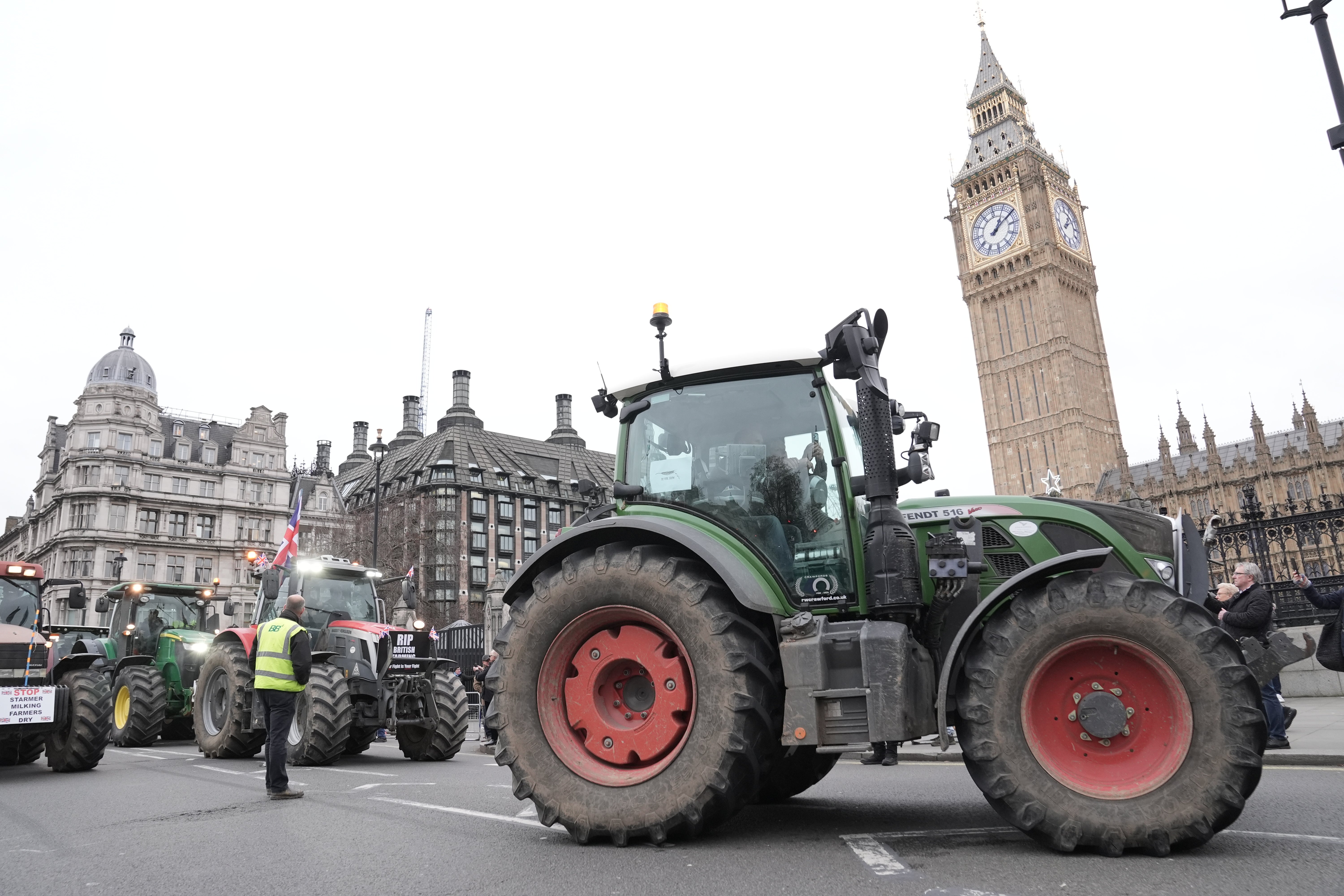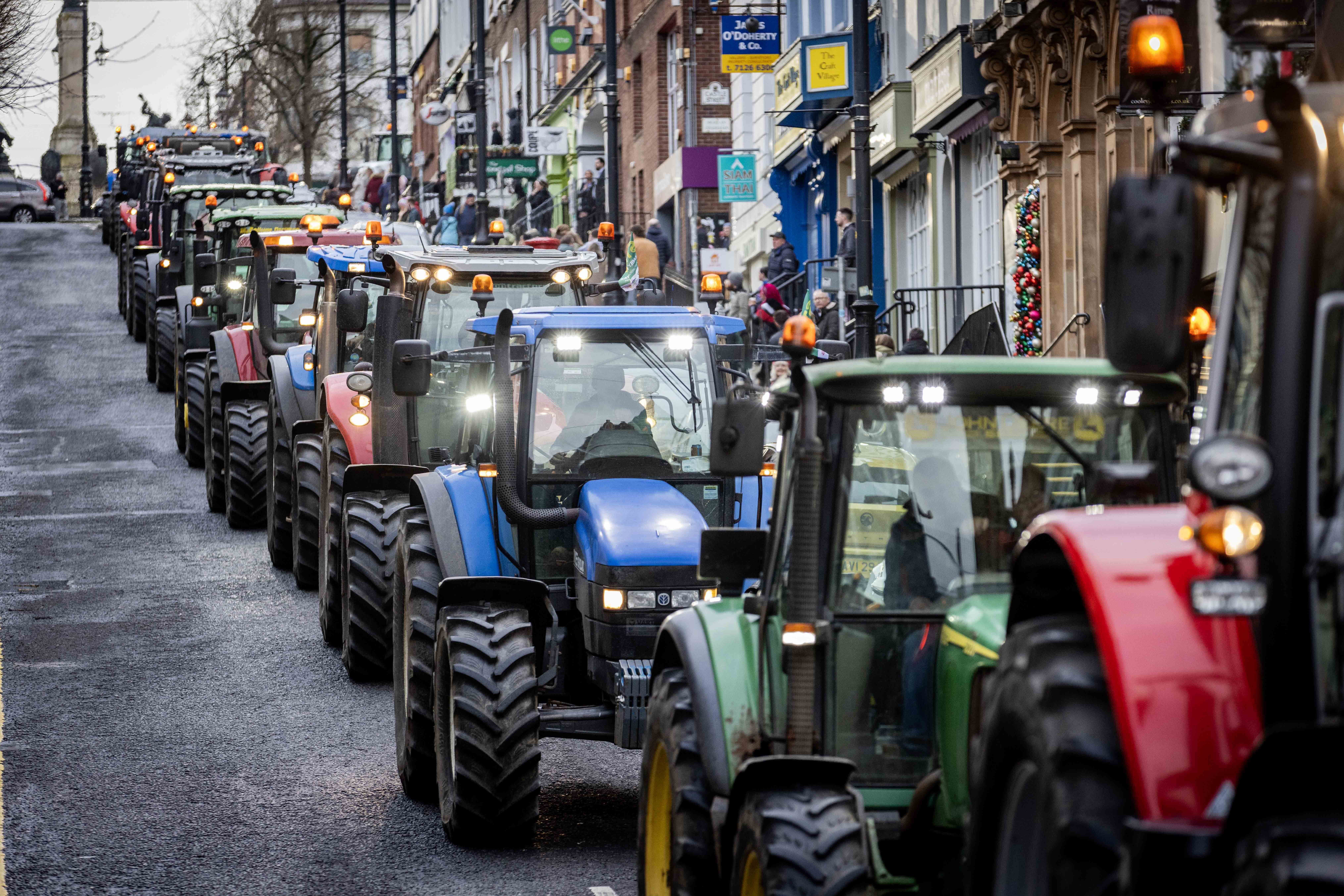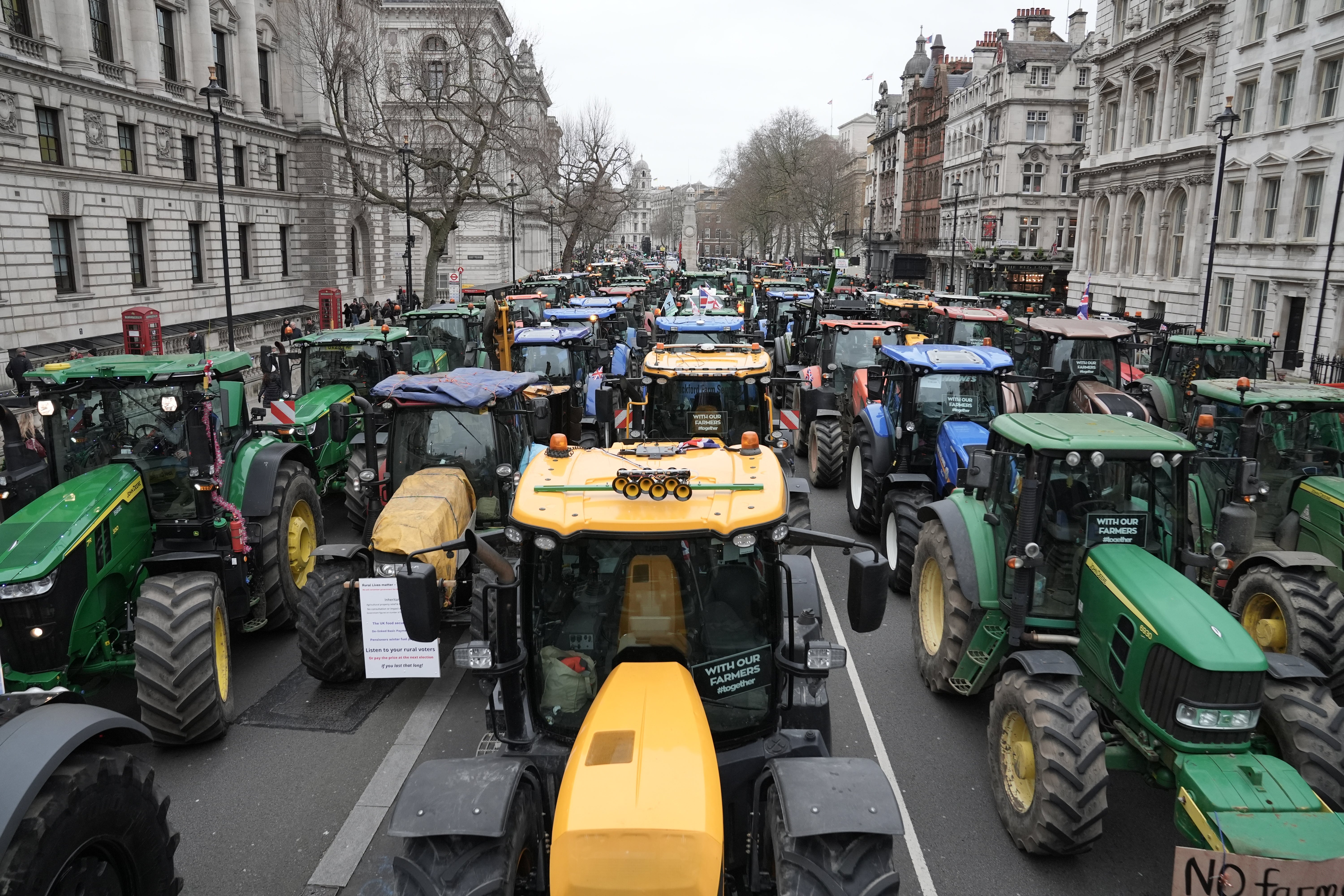More than three quarters of farms to be affected by Tractor Tax, new research shows
The shadow environment secretary urged the Government to record the number of farmers dying by suicide
Your support helps us to tell the story
From reproductive rights to climate change to Big Tech, The Independent is on the ground when the story is developing. Whether it's investigating the financials of Elon Musk's pro-Trump PAC or producing our latest documentary, 'The A Word', which shines a light on the American women fighting for reproductive rights, we know how important it is to parse out the facts from the messaging.
At such a critical moment in US history, we need reporters on the ground. Your donation allows us to keep sending journalists to speak to both sides of the story.
The Independent is trusted by Americans across the entire political spectrum. And unlike many other quality news outlets, we choose not to lock Americans out of our reporting and analysis with paywalls. We believe quality journalism should be available to everyone, paid for by those who can afford it.
Your support makes all the difference.More than three-quarters of all farms in England and Scotland will be impacted by new inheritance tax rules which have sparked mass protests, according to new research.
It comes after lines of tractors took to streets across Northern Ireland as part of a UK-wide protest by farmers against the announced cap on Agricultural Property Relief (APR).

But for assets over £1 million, inheritance tax will apply with 50 per cent relief, at an effective rate of 20 per cent.
The Agriculture and Horticulture Development Board (AHDB) have calculated that 42,204 out of 54,938 farms (76.8 per cent) across England and Scotland will be impacted by the new tax rules.
More than half affected are involved in cereals or general crop production as their main enterprise, with the rest predominantly livestock producers or mixed farming operations.

AHDB analyst Tom Spencer said: “Our calculations show that cereals and general cropping farms are the most likely to be affected due to their scale and asset size. For livestock farms, it is those businesses with single-person ownership that are most at risk.”
The levy board’s economics and analysis director, David Eudall, added: “Our priority is to help explain how this will impact many levy payers and support them on navigating a path through these challenges.
“The first stage has been to identify the farms at risk, so they can review their own circumstances and implement appropriate actions.

“It is critical for any affected farming enterprise to seek out expert tax and business planning advice. Succession planning was already important in agricultural farming businesses, now it is essential.”
It came as the shadow environment secretary Victoria Atkins urged the government to record the number of farmers dying by suicide to “understand the human cost” of their changes.
She said that pensioners, family businesses and farmers are paying the price for Labour’s “economic illiteracy” as she urged the government to commit to “a full and proper review of this dreadful policy”.
A government spokesperson said: “Our commitment to farmers remains steadfast.
“This Government will invest £5 billion into farming over the next two years, the largest budget for sustainable food production in our country’s history.
“We are going further with reforms to boost profits for farmers by backing British produce and reforming planning rules on farms to support food production.”

Join our commenting forum
Join thought-provoking conversations, follow other Independent readers and see their replies
Comments